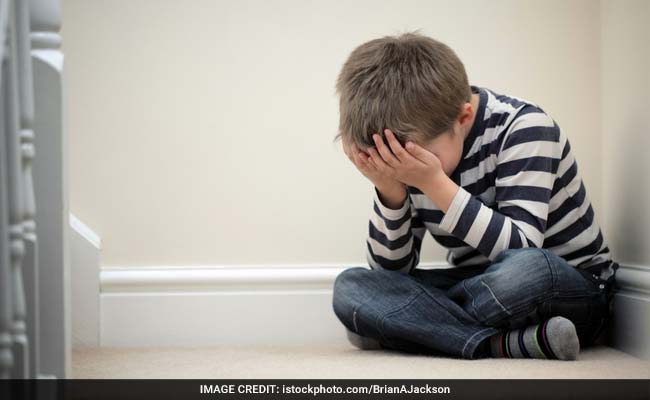Divorce is almost always stressful for children. It clearly increases the risk that children will suffer from psychological and behavioral problems.

Kids whose parents are separated are three times as likely to get sick
There is a trend of rising divorce rates in India and however miserably society treats divorced individuals; this trend is here to stay. Divorce brings about a huge shift in a child's life. Witnessing loss of love between parents, having parents break their marriage commitment, adjusting to going back and forth between two different households, and the daily absence of one parent while living with the other, all create a challenging new family circumstance to live in. They face a significant change in their life that harms them for decades, even adulthood, researchers said on Monday.
The study involved 201 healthy adults who agreed to be quarantined, exposed to a virus that causes the common cold, and monitored for five days. It was found that those whose parents had separated and had not spoken to each other for years were three times as likely to get sick, compared to those whose parents had separated but had stayed in touch as the children grew.
Previous research has shown that adults whose parents separated during childhood have an increased risk for poorer health. It showed that the adult children of parents who had separated but stayed in touch were no more likely to get sick than the adult children of intact families. "Our results target the immune system as an important carrier of the long-term negative impact of early family conflict," said Sheldon Cohen, a co-author and professor of psychology.
"Early life stressful experiences do something to our physiology and inflammatory processes that increase risk for poorer health and chronic illness," said the lead researcher Michael Murphy. "This work is a step forward in our understanding of how family stress during childhood may influence a child's susceptibility to disease 20-40 years later."
The dissolution of marriage between parents, shakes trust in dependency on parents who now behave in an extremely undependable way. They surgically divide the family unit into two different households between which the child must learn to transit back and forth, for a while creating unfamiliarity, instability, and insecurity, never being able to be with one parent without having to be apart from the other. Many resilient children still report painful memories and ongoing worries about divorce, their relationships with their parents, and their parents' relationship with each other.
Troubled children are particularly likely to develop problems with anger, disobedience, and rule violations. School achievement also can suffer. Other children become sad for prolonged periods of time. They may become depressed, anxious, or become perhaps overly responsible kids who end up caring for their parents instead of getting cared for by them.
For the parent who divorces with a child, the priority is establishing a sense of family order and predictability. This means observing the three R's required to restore a child's trust in security, familiarity, and dependency
-Routines
-Rituals
-Reassurance.
Thus parents establish household and visitation Routines so the child knows what to expect. They allow the child to create Rituals to feel more in control of her life. And they provide continual Reassurance that the parents are as lovingly connected to the child as ever, and are committed to the making this new family arrangement.
DoctorNDTV is the one stop site for all your health needs providing the most credible health information, health news and tips with expert advice on healthy living, diet plans, informative videos etc. You can get the most relevant and accurate info you need about health problems like diabetes, cancer, pregnancy, HIV and AIDS, weight loss and many other lifestyle diseases. We have a panel of over 350 experts who help us develop content by giving their valuable inputs and bringing to us the latest in the world of healthcare.














